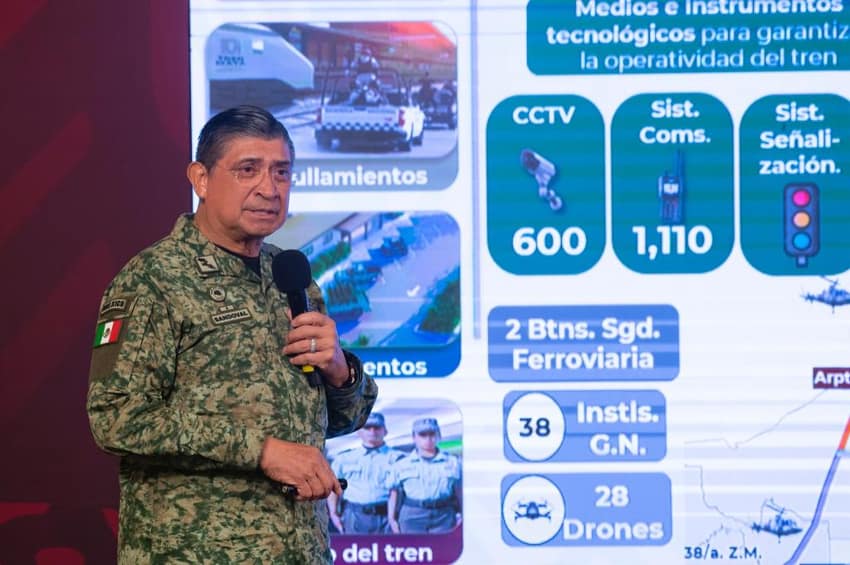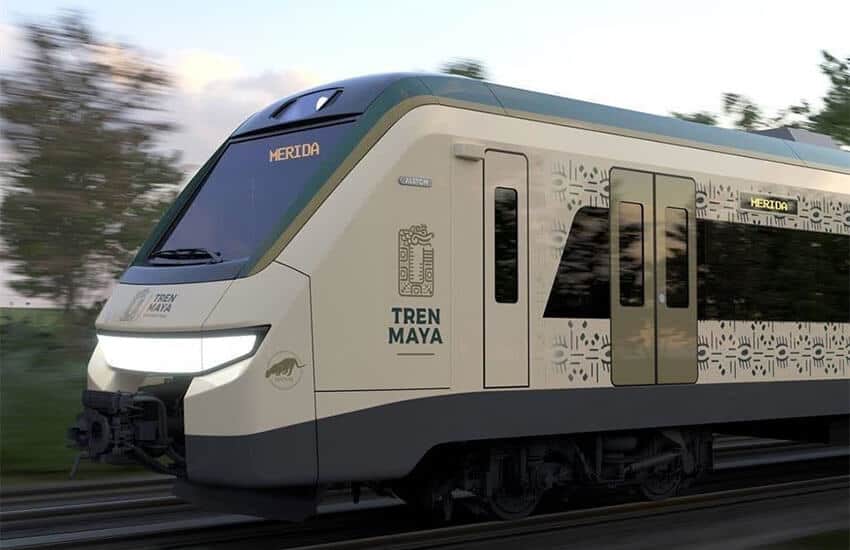- The Chamber of Deputies passed legislation on Tuesday allowing the Defense Ministry (Sedena) to control the Maya Train. The law would permit the executive to grant state entities control of the country’s railroads for an indefinite period.
Changes to the General Communications Law, Railway Service Regulatory Law and the Federal Law of Public Entities were approved with 263 votes in favor from Morena and its allies, and 218 against from the opposition.

It was voted on in the Lower House through a fast-track decree, meaning there was no discussion in committees, and it was passed without in-depth study of the possible effects of the changes.
“The assignment’s title in favor of parastatal [public] entities will have an indefinite validity. Once said assignment is granted, it may not be assigned or transferred under any title; it can conclude when it is irrefutably proven that there is no public utility of interest, general interest, social interest or national security reasons that justify it,” the amendment to the Railway Service Regulatory Law states.
On April 13, a majority state-participation company called Tren Maya, S.A., controlled by Sedena, was authorized to “carry out all necessary actions to manage, operate, exploit and build the Maya Train; provide railway, complementary and commercial services, by itself or through various legal figures of public and private law.”
Deputy Julieta Mejía, of the Citizens Movement (MC) party, opposed the reforms because it gives the military further control over public works projects.

“We cannot turn Sedena into the builder of Mexico,” she said. “They are going to give the armed forces total and indefinite control of the infrastructure projects in our country.”
Under President López Obrador, the military’s participation in public works and infrastructure projects has broadened. On Friday, the Lower House approved a reform to the Civil Aviation and Airport laws that allows the formation of a state-owned airline operated by Sedena. This followed another reform passed in February giving the military control over Mexican airspace.
Sedena will also oversee the construction of six hotels near the Maya Train route through the state-owned company Olmeca-Maya-México.
On the same day, the Chamber of Deputies also passed legislation (256 votes in favor and 216 against) mandating the creation of a trust that would be funded by tourist taxes and fees, with 80% of those funds going to the Maya Train and other megaprojects. This is equivalent to about 20 billion pesos. The remaining 20% will go to the National Immigration Institute (INM).
In 2020, President López Obrador liquidated 109 trusts dedicated to various projects because he considered them a source of corruption. For this reason, National Action Party (PAN) legislator Héctor Téllez called the recent legislation hypocritical.
Deputy Yericó Abramo of the Institutional Revolutionary Party (PRI) also decried the reform, noting that it would take revenue from municipal tourist projects and “blindly” allocate them to the Maya Train.
Both reforms will now move to the Senate for discussion.
